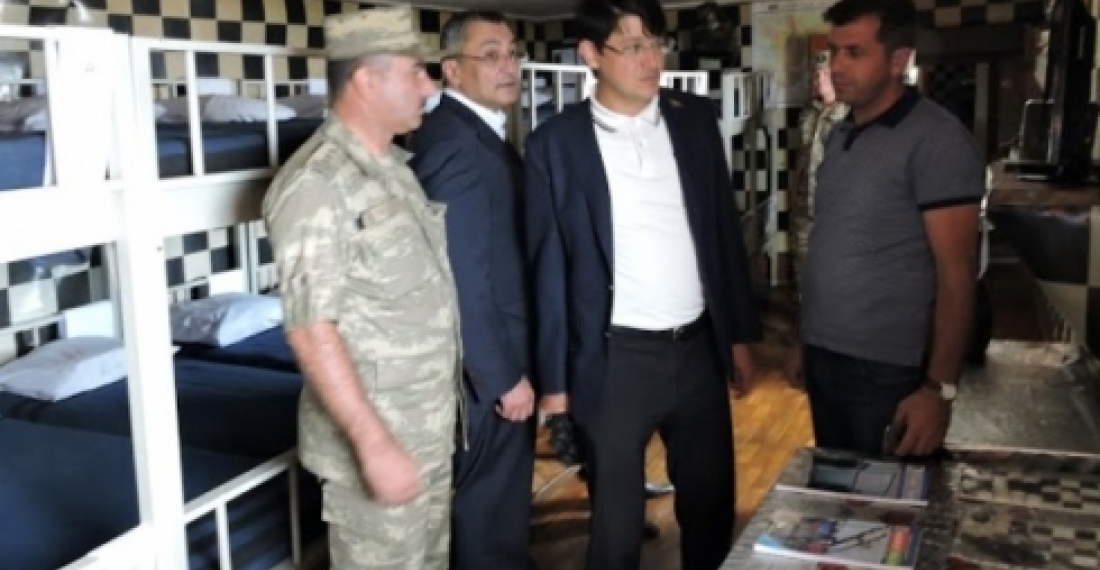Azerbaijani Members of Parliament and journalists affiliated to the Parliamentary Journalists Union have visited soldiers serving on the front-line in the Nagorno-Karabakh conflict zone. MPs Fuad Muradov and Rovshan Rzayev, accompanied by a number of journalists and NGO representatives visited units near Goygol Settlement in the Tovuz District. They met servicemen and inspected the living facilities of soldiers close to the line of contact.
The pro-government website, modern.az said that the aim of the visit was to ensure that the Azerbaijani public was properly informed of conditions on the front line, whilst safeguarding national security. It was explained that the visit was part of a project supported by the State Commission for the support of NGOs.
In recent weeks the Azerbaijani Ministry of Defence has often criticised independent media outlets, and accused them of spreading misinformation in their coverage of military matters. The Ministry's concerns were raised mainly about incidents that occur on a daily basis on the line of contact and in which there are often casualties. The Ministry of defence has in the past also taken exception to media reports about the living conditions of soldiers on the frontline.
source: commonspace.eu
photo: Azerbaijani MPs Fuad Muradov and Rovshan Rzayev inspecting living accomodation of front line troops in the Goygol settlement of the Tovuz District on Saturday, 15 August 2015. (picture courtesy of modern.az).







